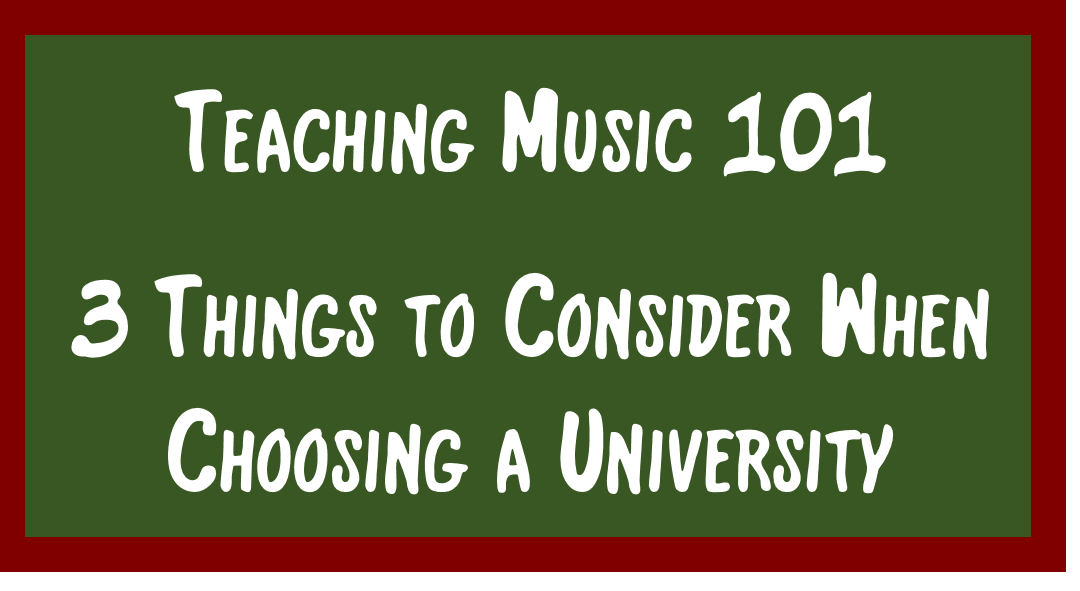Just recently I found myself in a conversation with a young lady who was trying to make decisions about where she should pursue a degree in music education. Here are some ideas I hope she will consider as she looks for the best place to study.
If you enjoy this article, please feel free to read the first article in the series Teaching Music 101
Most people first need to consider price and location. However, when you get to the point where you are comparing two or three options that will work, you may need to consider a few things more carefully. This is not an exhaustive list of things to consider, but a list of things that you might not think of initially that can make a HUGE difference in your experience at college. Remember that no matter what school you choose, the quality of education you receive is most dependent upon you and your willingness to work hard and take advantage of the opportunities you gain as a result of your hard work.
- In real life, the music teacher is often the only pianist on campus.
- In real life, no one will have time to come in and accompany your choir AND you won’t have the $$$ to pay them even if they have time to help you….
- In real life, sound systems fail but the piano in the corner of the cafeteria will still play.
With that in mind, you should choose the school with the program with the most rigorous piano requirements for music education students whose primary instrument is NOT piano. Request the information from the schools you are interested in. For example: If one school requires 4 octave scales in just major and harmonic minor while the other requires you to also play melodic and natural minor, choose the one that requires all 3 minors. It’s more work, but you’ll be better for it. The required repertoire should be varied and challenging. Choose the most difficult piano barrier so that when you have met the requirement you actually have employable skills. That little bit of extra piano will pay off and is worth the extra hours and you have to pay for and the extra work you have to do to get it!
Choose a University whose school of music and school of education have a good partnership and collaborate well. You don’t want to be half way through your education and find that you are in the midst of a conflict. Both of your schools, your school of music and school of education should be accredited nationally and should be current in their pursuit of best practices, educational philosophy and research. Pay close attention to schools of education who have strong Early Childhood programs in place have solid coursework in child development. Early childhood is a very important and often overlooked reality of being a music teacher. At least in Texas, the certification for becoming a music teacher is PK-12. This is a REALLY wide range. Most of the music teachers I know have to put more effort into planning, preparing and executing their Pre-k and kinder lessons than the rest of their day. Therefore some focus on early childhood would be time well spent.
You won’t begin your education classes until later, but it would be a good idea to find out about how observations and student teaching works. You should choose a school that provides the most opportunities for observation and for student teaching. Find out what partnerships are in place between your university and local school districts and even neighboring metropolitan school districts. Some schools are more flexible than others about where you observe and student teach. Make sure that you understand their policies. Additionally, be prepared to work with your education faculty to arrange observations in actual music classrooms. I found that unless I spoke up, they would schedule me to observe whatever class was available, but I REALLY needed to spend the majority of my time in the music classroom.


I've nominated you for a Liebster Award! See the post here! http://allstarmusicva.blogspot.com/2014/12/liebster-award.html